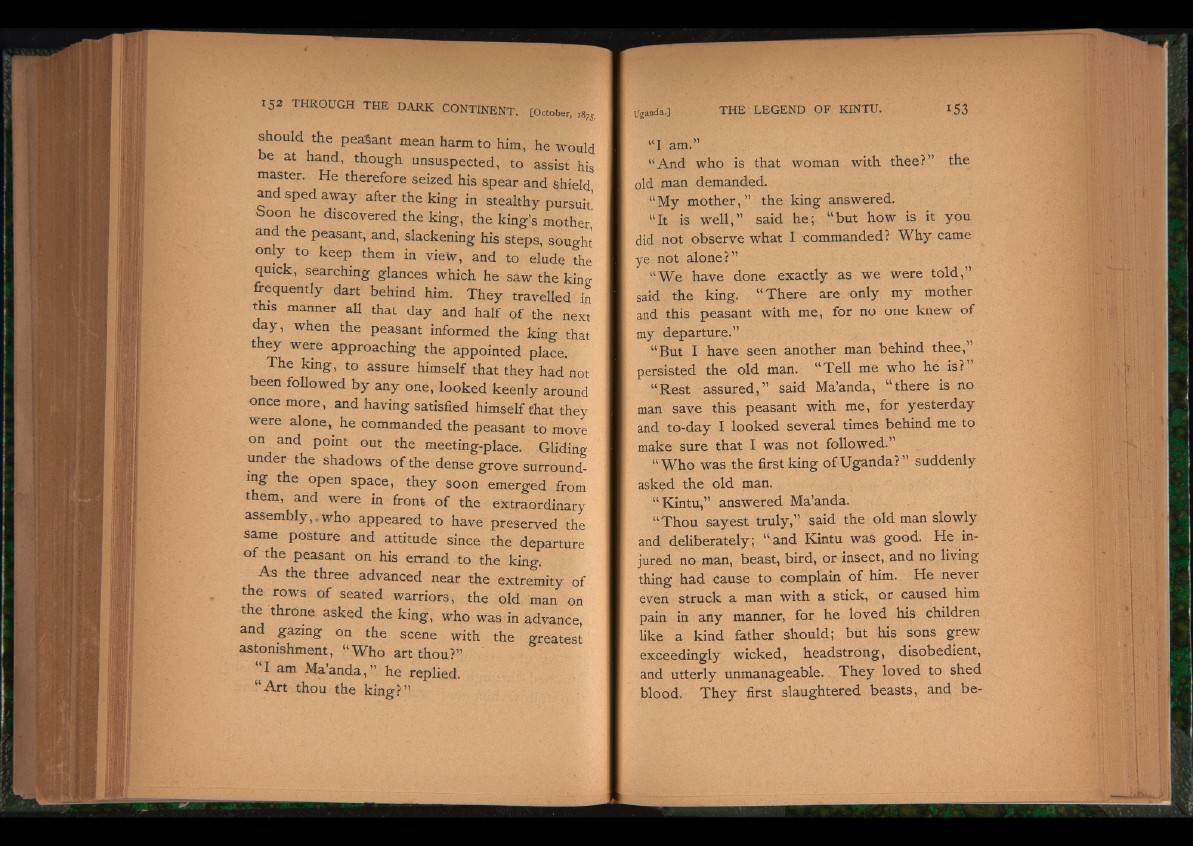
should the peasant mean harm to him, he would
be at hand, though unsuspected, to assist his
master. He therefore seized his spear and shield
and sped aw ay after the king in stealthy pursuit’
boon he discovered the king, the king’s mother
and the peasant, and, slackening his steps, sought
only to keep them in view, and to elude the
quick, searching glances which he saw the king
equently dart behind him. T h e y travelled in
this manner all that day and half o f the next
d a y , when the peasant informed the king that
th ey were approaching the appointed place.
T he king, to assure himself that they had not
been followed b y any one, looked keenly around
once more, and having satisfied himself that they
were alone, he commanded the peasant to move
on and point out the meeting-place. Gliding
under the shadows o f the dense grove surrounding
the open space, th ey soon emerged from
them, and were in front o f the extraordinary
assembly,. who appeared to have preserved the
same posture and attitude since the departure
o f the peasant on his errand to the king.
A s the three advanced near the extremity of
the rows o f seated warriors, the old man on
the throne asked the king, who was in advance,
and gazing on the scene with the greatest
astonishment, “ Who art thou?”
I am M a an d a ,” he replied.
“ A r t thou the k in g ? ”
“ I am.”
“ And who is that woman with thee?” the
old man demanded.
“ My mother,” the king answered.
“ It is w e ll,” said he; “ but how is it you
did not observe what I commanded? W h y came
ye not alone?”
“W e have done e x a c tly as we were to ld ,”
said the king. “ There are on ly my mother
and this peasant with me, for no one knew of
my departure.”
“ But I have seen another man behind thee,”
persisted the old man. “ T e ll me who he is?”
“ Rest assured,” said Ma’anda, “ there is no
man save this peasant with me, for yesterday
and to-day I looked several times behind me to
make sure that I was not followed.”
“Who was the first king o f Uganda?” suddenly
asked the old man.
“ Kintu,” answered Ma’anda.
“ Thou sayest truly,” said the old man slowly
and deliberately; “ and Kintu was good. He injured
no man, beast, bird, or insect, and no living
thing had cause to complain o f him. He never
even struck a man with a stick, or caused him
pain in any manner, for he loved his children
like a kind father should; but his sons grew
exceedingly wicked, headstrong, disobedient,
and utterly unmanageable. T h e y loved to shed
blood. T h e y first slaughtered beasts, and b e